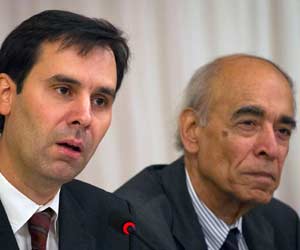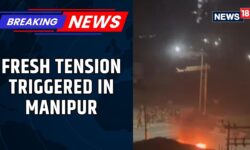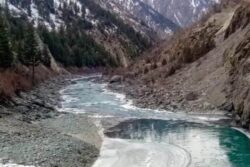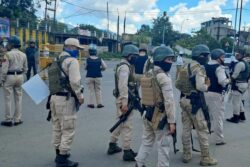UN asks Pak about hundreds of missing people

Islamabad:NDTV: The United Nations on Thursday stepped up pressure on Pakistan over the fate of hundreds of people who have disappeared into the illegal custody of the country’s powerful intelligence and law enforcement agencies over the last decade.
 A two-person delegation, led by a French law professor, Olivier de Frouville, spent 10 days meeting with government officials and about 100 people who said their relatives had been illegally abducted and, in some cases, tortured and killed.
A two-person delegation, led by a French law professor, Olivier de Frouville, spent 10 days meeting with government officials and about 100 people who said their relatives had been illegally abducted and, in some cases, tortured and killed.
But in a sign of the delicacy of the subject, the leadership of the powerful Inter-Services Intelligence agency and the paramilitary Frontier Corps, which have been blamed for many of the disappearances, refused to meet the United Nations team.
The current spate of disappearances started after 2001, when American officials pushed their Pakistani counterparts to abduct people suspected of being militants with Al Qaeda. But in recent years the phenomenon has been concentrated in the sprawling western province of Baluchistan, where a national insurgency has been under way since about 2006.
Estimates of the scale of the problem vary enormously, from fewer than 100 missing people acknowledged by the provincial government of Baluchistan, to more than 14,000 claimed by some campaigning groups.
The fact that the Pakistani government had invited the team to visit constituted a tacit admission that there is a problem, Mr. de Frouville said. “There is acknowledgment that enforced disappearances have occurred and still occur in the country,” he said.
The 10-day visit was marked by controversy from the start. Even though the United Nations team enjoys little more than moral authority – Mr. de Frouville was reluctant to even describe it as a “fact finding” mission – it came in for withering criticism in Pakistan’s Parliament and some news media outlets, where right-wing politicians slammed it as a threat to national sovereignty.
Some of the witnesses who met with the delegation, including in the Baluch capital, Quetta, told its members that they had been “threatened or intimidated,” Mr. de Frouville said.
Speaking to local and international reporters, he appealed to the government “to guarantee the safety of those who have met us and protect them from any form of reprisals, threat or intimidation.”
Despite its modest powers, the United Nations mission did bring new attention to a phenomenon that has eluded the efforts of the Pakistani government to solve.
Mr. de Frouville noted that a judicial inquiry into the disappearances, started by the Supreme Court in March 2011, had been hampered by the presence of intelligence operatives at hearings, which prevented some witnesses from speaking out.
“Some said they had no fear to confront them, whereas others felt intimidated,” he said. He called on the government to hear future testimony in private.
The United Nations officials also touched on the delicate issue of prosecutions of perpetrators, urging the government to amend the law so that illegal abductions by agents of the state will become a criminal offense.
They called on the government to provide financial aid to the relatives of people who have disappeared, in particular women and children.
More contentiously, they recommended that military personnel facing charges connected with the disappearances be suspended from official duty so they can be tried by ordinary courts. Currently, officers are subject only to secretive military courts; the military has staunchly resisted efforts to prosecute them elsewhere.
A spokesman for the government could not be reached for comment on Thursday evening.
Impunity in Pakistan is a concern “for the whole society,” Mr. de Frouville said, before quoting the mother of a disappeared person who had asked the United Nations officials to convey a message to “all persons in public life” in Pakistan.
“If your child disappeared, what would you do?” he said, citing her words.
© 2012, The New York Times News Service





